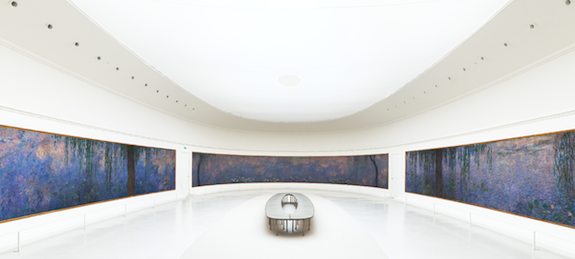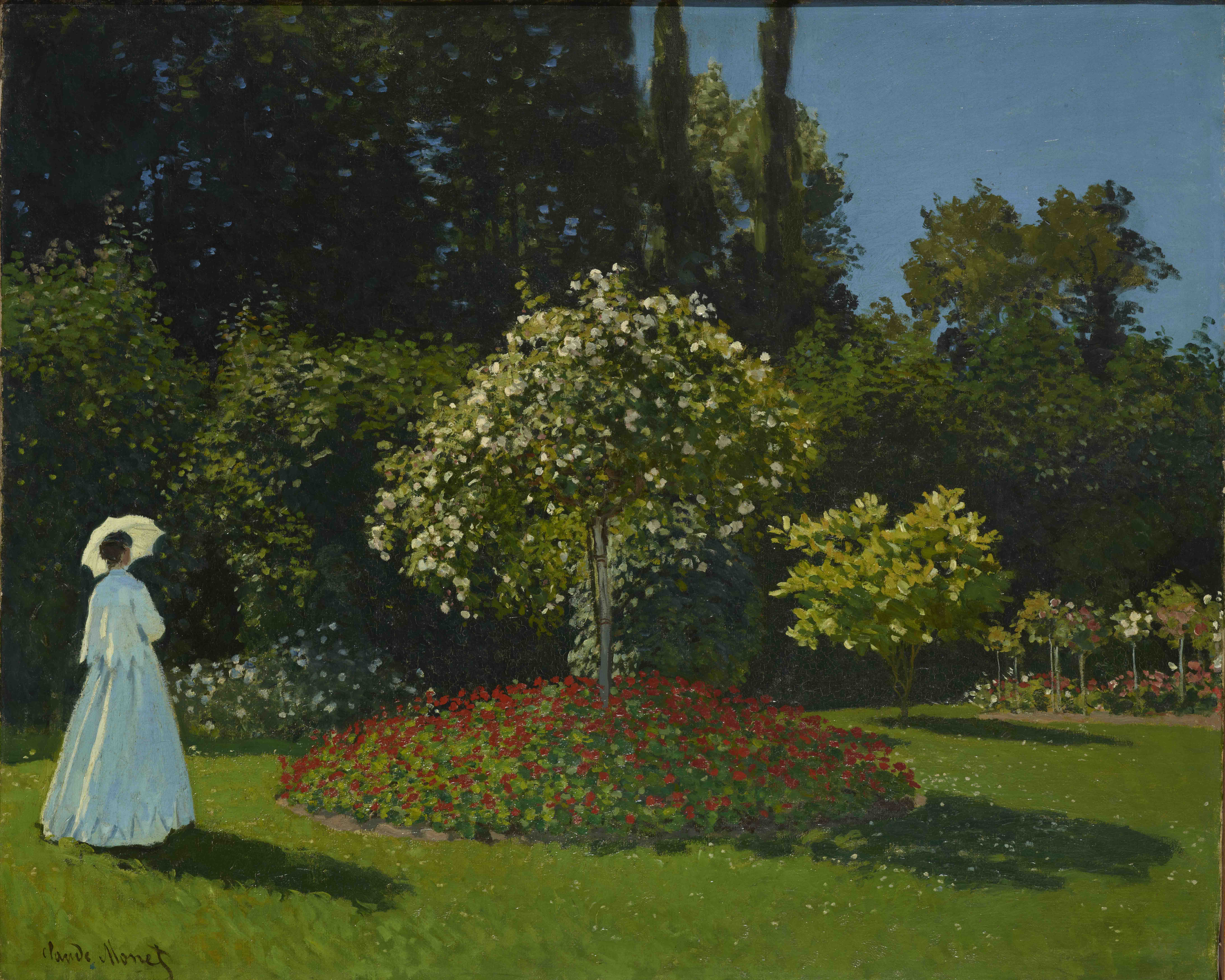The Royal Academy of Arts is presenting Painting the Modern Garden: Monet to Matisse, a major
exhibition through 20
April 2016,
examining the role of gardens in the paintings of Claude Monet and
his contemporaries. With Monet as the starting point, the exhibition will span
the early 1860s to the 1920s, a period of tremendous social change and
innovation in the arts, and will include Impressionist, Post-Impressionist and
Avant-Garde artists of the early twentieth century. It will bring together over
120 works, from public institutions and private collections across Europe and
the USA, including 35 paintings by Monet alongside rarely seen masterpieces by
Paul Klee, Emil Nolde, Gustav Klimt and Wassily Kandinsky.
Arguably the most
important painter of gardens in the history of art, Monet was also an avid horticulturist
who cultivated gardens wherever he lived. As early as the 1860s, a symbiotic
relationship developed between his activities as a horticulturist and his
paintings of gardens, a relationship that can be traced from his early years in
Sainte-Adresse to his final months at Giverny. ‘I perhaps owe it to flowers’,
he wrote, ‘that I became a painter’.
A rich selection of documentary materials
including horticultural books and journals, as well as receipts for purchases
of plants and excerpts from letters, are be included in the exhibition.
Highlights
of the exhibition include a magnificent selection of Monet’s water lily
paintings including the great Agapanthus Triptych of 1916 -1919, (The Nelson-Atkins
Museum of Art, Kansas City; The Cleveland Museum of Art, Cleveland; Saint Louis
Art Museum, St Louis) works that are closely related to the
great panorama that he donated to the French State in 1922 and that are now permanently housed in the Musée de l’Orangerie in Paris.
great panorama that he donated to the French State in 1922 and that are now permanently housed in the Musée de l’Orangerie in Paris.
It will be the first time this monumental
triptych has been seen in the UK.
This exhibition is among the first to
consider Monet’s Grandes Décorations as a response to the traumatic events of
World War I, and the first to juxtapose the large Water Lilies with garden
paintings by other artists reacting to this period of suffering and loss.
Other
highlights include
Monet’s Lady in the Garden, 1867 (The State Hermitage Museum, St Petersburg);
Monet’s Lady in the Garden, 1867 (The State Hermitage Museum, St Petersburg);
Auguste Renoir’s Monet Painting in His Garden at
Argenteuil, 1873 (Wadsworth Atheneum Museum of Art, Hartford);
Wassily Kandinsky’s Murnau The Garden II, 1910 (Merzbacher
Kunststiftung) and
Pierre Bonnard’s Resting in the Garden, 1914 (The National Museum of Art, Architecture and Design, Oslo).
Pierre Bonnard’s Resting in the Garden, 1914 (The National Museum of Art, Architecture and Design, Oslo).
Works by artists such as Edouard
Manet, Mary Cassatt, Berthe Morisot, Camille Pissarro, Paul Cézanne, James-Jacques
Tissot, John Singer Sargent, Joaquín Sorolla, Max Liebermann,Santiago Rusiňol,
Henri Matisse, Paul Klee, Vincent van Gogh, Gustav Klimt, Emil Noldeand Edouard
Vuillard will also feature.As the nineteenth century drew to a close,
Symbolists, Fauves, and German Expressionists embraced more subjective
approaches by imagining gardens as visionary utopias; many turned to painting gardens
to explore abstract color theory and decorative design.In the early twentieth
century, Monet emerges as a vanguard artist.
The monumental canvases of his
garden at Giverny anticipate major artistic movements that were to come such as
American Abstract Expressionism. The exhibition will be arranged thematically,
leading visitors through the evolution of the garden theme, from Impressionist
visions of light and atmosphere to retreats for reverie and dreams, sites for
bold experimentation, sanctuaries of refuge and healing, and, ultimately,
signifiers of a world restored to order –a paradise regained.
Framing the
paintings in the context of broad artistic movements, as well as social and
political events, will offer unprecedented paths for understanding the garden
as a multifaceted, universal theme in modern art.
ORGANISATION
Painting the
Modern Garden: Monet to Matisse has been co-organised by the Royal Academy of
Arts and the Cleveland Museum of Art. The exhibition is curated by Ann Dumas,
Curator, Royal Academy of Arts and Dr.William H. Robinson, Curator of Modern European
Art at the Cleveland Museum of Art.
Painting the Modern Garden: Monet to Matisse is accompanied
by a fully illustrated catalogue. Authors include Monty Don, horticulturalist
and presenter; James Priest, Head Gardener at Monet’s garden at Giverny;
William H. Robinson, Curator of Modern European Art at the Cleveland Museum of Art;
Ann Dumas, Curator at the Royal Academy of Arts; Heather Lemonedes, Curator of
Drawings at the Cleveland Museum of Art and Clare P Willsdon, Professor of the
History of Western Art at the University of Glasgow.
Good Review
Good Review

